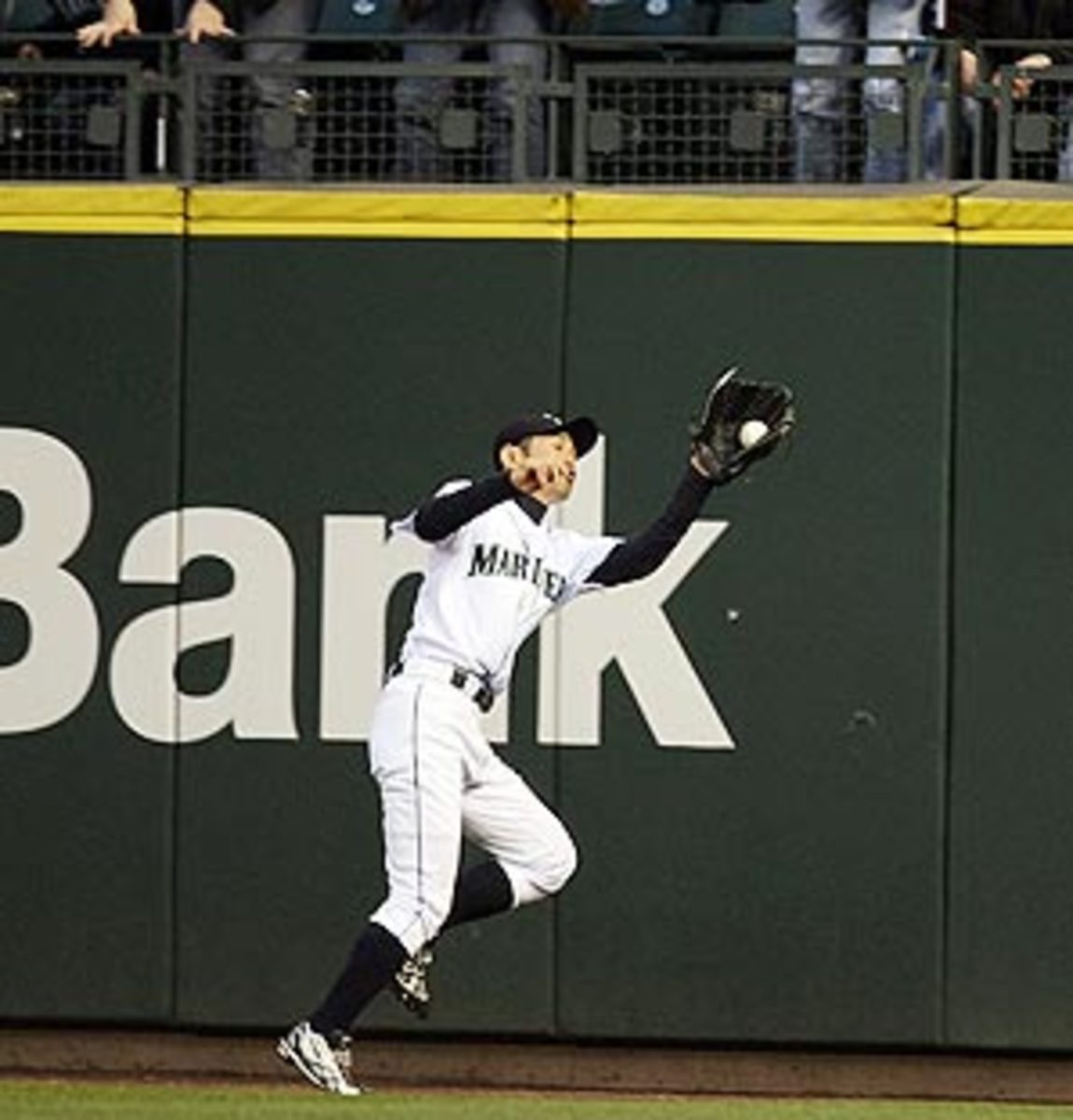The hidden game: Good defense can turn chumps into champs
A near iron law of baseball holds that if you can't quite tell why a team is good, it's probably good at defense. On Tuesday, I had a chance to test this theory against 17 innings of observation when the first-place Seattle Mariners played a straight doubleheader over a cold afternoon and evening in Chicago. It was an education.
In the first game, the Mariners fielded Ichiro Suzuki in right, Franklin Gutierrez in center and Endy Chavez in left. Given the presence of three true center fielders, this is probably the best outfield in the sport, not only quick and sure-handed, but masterful in working angles. The Mariners lost the game, but pitcher Chris Jakubauskas, who throws exactly how you would expect a 30-year-old rookie to throw, with excellent form and modest speed and movement, pitched brilliantly. He yielded just three base runners in eight innings, and part of that was due to his outfielders, who snared seven balls out of the air, several from spots they shouldn't have been able to reach.
Watching them was a pleasure. Most outfielders, even good ones, usually chart routes along right angles, moving in and out and side to side on the ball. The Mariners, especially Chavez, excel at diagonal routes. This, as well as their speed, allows them to reach more balls, and does a lot to explain why the Mariners are winning while playing three outfielders who in their careers have combined for a total of 27 home runs per 162 games.
It isn't just skill at work here. Like other teams, the Mariners put real thought into positioning. "There's obviously three ways of looking at defending a batter," explains manager Don Wakamatsu. "Number one is you look at their sprays versus a left-hander or a right-hander pitching. Number two is you look at what hitters do off your pitcher individually. Number three is the individual matchups.
"Some clubs tend to look more so at a hitter's spray chart and just generalize. We do try to take it a little step further."
The Mariners' staff breaks down hitter performance against various pitch types and locations, matches that against pitcher tendencies, and then positions the fielders accordingly. This isn't anything that teams haven't been doing since John McGraw's day, but it's been made much easier over the years by advances in computerized data collection. If the Mariners know that no one ever pulls Erik Bedard's curveball, for instance, they can pull the left fielder all the way toward center field at certain times. It's the basic logic of the shift applied to more and subtler situations. Match it with defensive talent like the Mariners have, and you get something noteworthy.
That a high-revenue team would place such weight on its outfield defense is, arguably, part of a broader movement in the game. Last year, going by Ultimate Zone Rating, a sophisticated defensive statistic based on play-by-play data, the pennant winners were streets ahead of any other team in the field, saving more than 30 runs on defense above what the third-best team did. As was widely noted last year, in fact, the Tampa Bay Rays' defense was basically why a joke team that had never lost fewer than 91 games in a season won 97. According to UZR data, in going from the worst defensive team in baseball in 2007 to the best last year, the Rays improved by around 130 runs, the rough equivalent of having replaced the worst hitter in their lineup with Barry Bonds in his absolute prime.
Making this sort of improvement can be relatively cheap. Chavez, for instance, is such a good defender that he's nearly as valuable as the man he's replacing in left field, Raul Ibanez, even though his career slugging average is more than 100 points lower. Despite that, he makes about one-fifth of Ibanez's salary. Home runs earn money; glove work generally doesn't. And as Wakamatsu points out, another crucial benefit of building on defense is that it can act as what the military calls a force multiplier.
"The bottom line is efficiency," he says, "This game is about pitch economy. The team that throws less pitches generally wins."
It's an obvious point, but one apparently overlooked by teams such as New York's two clubs, who have struggled in part because of lousy pitching that hasn't been helped by lousy defense. When fielders turn a lot of balls into outs, it keeps starting pitchers in the game and fringe relievers out. It can also help a journeyman like Jakubauskus have a career game, or an aging junkballer like Mariners lefty Jarrod Washburn run up a 3.42 ERA through the first month of the season, or a blinding talent like Felix Hernandez put up utterly dominant performances like he did in Tuesday's second game, when he struck out nine against a walk and four hits in eight innings.
Either way, the wins count the same. The Mariners are on pace to improve on last year's UZR total by about 80 runs, which is a bit like having swapped out shortstop Yuniesky Betancourt for Hanley Ramirez. Granting that it's early and that UZR, like any statistic, has its quirks -- right now it rates spectacularly inept Mets left fielder Daniel Murphy among the better defenders in the game -- this would seem to suggest the Seattle Mariners are for real. And if not, they're still a joy to watch.






